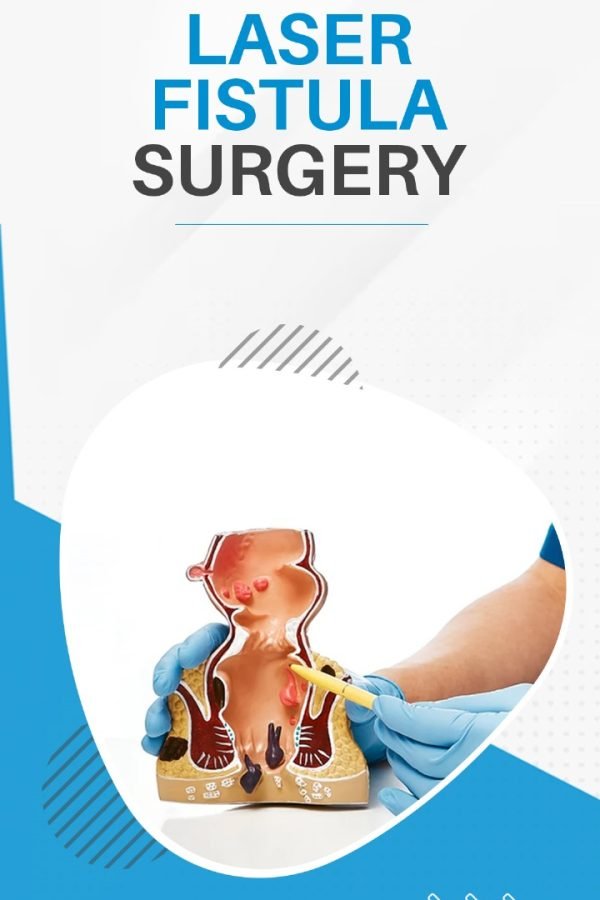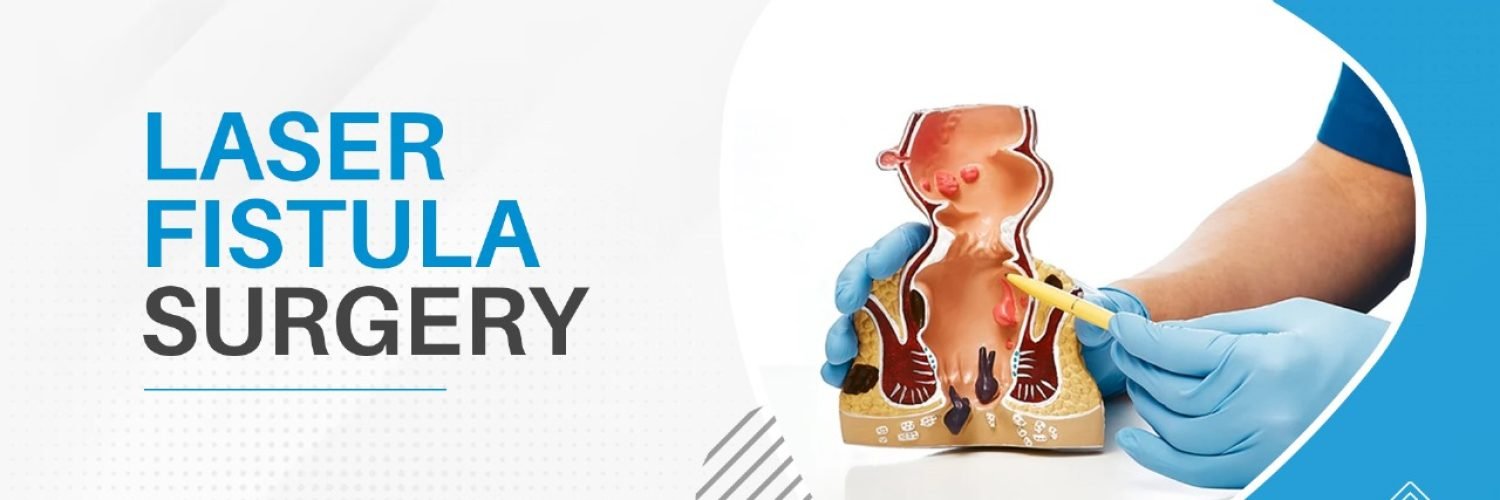- Anal Fissure Laser Surgery in Dombivli
- Appendix Treatment in Dombivli
- Bariatric Surgery in Dombivli
- Best Laparoscopic Surgeon in Dombivli
- Blogs
- Contact us
- Custom
- Dr Rahul Mahadar
- Dr. Dhanashree Mahadar
- Endoscopy Clinic in Dombivli
- Ent Surgeon in Dombivli
- Gallbladder Stone Treatment in Dombivli
- Gastrointestinal Surgeon in Dombivli
- Hernia Surgeon in Dombivli
- Home
- Laser Fistula Surgery in Dombivli
- Laser Piles Surgeon in Dombivli
- Services
- Specialities
- Testimonials
- Video


Laser Fistula Surgery
Laser Fistula Surgery, also known as Laser Fistulotomy or Laser Ablation Of Fistula, is a minimally invasive surgical procedure used to treat anal fistulas. Anal fistulas are abnormal connections or passageways between the anal canal or rectum and the skin around the anus. These fistulas typically result from an infection in an anal gland, causing an abscess to form, which then leads to the development of a tract or tunnel.
There are several benefits of laser fistula surgery over traditional surgical techniques-
- Minimally Invasive: Laser fistula surgery is minimally invasive compared to traditional open surgery. It involves making smaller incisions or sometimes no external incisions at all, resulting in less tissue damage and faster recovery times.
- Reduced Pain and Discomfort: Because laser fistula surgery is less invasive, it typically causes less pain and discomfort during and after the procedure. Patients may experience less post-operative pain, swelling, and bruising compared to traditional surgery.
- Faster Recovery: The minimally invasive nature of laser fistula surgery allows for quicker recovery times. Many patients are able to return to their normal activities sooner, with less downtime required for recuperation.
- Lower Risk of Complications: Laser fistula surgery carries a lower risk of complications such as infection, bleeding, and incontinence compared to traditional open surgery. The precision of the laser allows for targeted treatment of the fistula tract while minimizing damage to surrounding healthy tissue.
- Outpatient Procedure: Laser fistula surgery is often performed on an outpatient basis, meaning patients can typically go home the same day as the procedure. This reduces hospital stays and associated costs.
- High Success Rates: Studies have shown that laser fistula surgery can be highly effective in treating anal fistulas, with high rates of fistula closure and low rates of recurrence.
Laser fistula surgery involves the use of laser technology to precisely cut and seal the fistula tract. The procedure is typically performed under local or general anesthesia, depending on the location and complexity of the fistula. Here’s a detailed overview of the steps involved in laser fistula surgery-
- Patient Preparation: Before the surgery, the patient undergoes a thorough evaluation, which may include imaging studies such as MRI (magnetic resonance imaging) or CT (computed tomography) scans to assess the location and extent of the fistula.
- Anesthesia: The patient is administered either local or general anesthesia based on the surgeon’s recommendation and the patient’s preferences and medical condition.
- Accessing the Fistula: The surgeon gains access to the fistula tract either through natural openings or by creating small incisions near the site of the fistula. In some cases, specialized instruments such as an anoscope or proctoscope may be used to visualize the fistula tract.
- Laser Application: A specialized surgical laser device is introduced into the fistula tract. The laser emits highly concentrated light energy, which is directed precisely to the tissues surrounding the fistula. The surgeon uses the laser to cut through the tissues along the fistula tract while simultaneously sealing blood vessels and minimizing bleeding.
- Tract Excision: As the laser progresses along the fistula tract, it vaporizes the tissues, effectively removing the entire tract. The goal is to completely eliminate the abnormal connection between the affected organs or structures.
- Closure and Healing: Once the entire fistula tract is excised, the surgical site is thoroughly irrigated to remove any debris or residual tissue. Depending on the size and location of the fistula, the wound may be left open to heal naturally or closed with sutures or surgical glue.
- Postoperative Care: After the surgery, the patient is monitored closely in the recovery area. Pain medications and antibiotics may be prescribed to manage pain and prevent infection. Patients are typically advised to follow a specific diet and activity restrictions to promote healing.
However, it’s important to note that laser fistula surgery may not be suitable for all types of fistulas or patients. The decision to undergo this procedure should be made in consultation with a qualified surgeon, who can assess the individual’s condition and determine the most appropriate treatment approach.

